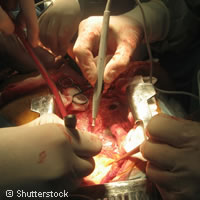Saving lives, one organ at a time
Organ transplants save thousands of lives in Europe every year but the short supply of these critical body parts means that others are not as lucky. To make the best possible use of scarce organs, the ALLIANCE-O ('European group for coordination of national research programmes on organ donation and transplantation') project pooled the experience of transplant organisations from across the EU to forge a real European network for organ donation. This Coordination action received EUR 2 million under the ERA-NET (European Research Area Network) strand of the Sixth Framework Programme (FP6). Last month, the European Parliament passed legislation to make organ donations and transplants easier, both within and across national borders. About 60,000 European citizens are currently on a donation waiting list, hoping to receive an organ that could save their life. National or regional organisations must ensure that these patients have the highest possible chance of receiving an organ quickly and safely - and away from any kind of illegal trafficking. The directive establishes common EU quality and safety standards, and European governments will have two years to transpose these rules into their national legislation. This major policy step stems in part from the input of the ALLIANCE-O research project. For the first time, this consortium brought together agencies in charge of organ donations and transplants in seven EU Member States. They reviewed and compared practices, problems and solutions at all stages of the transplantation process, and published practical recommendations. In particular, they encouraged EU countries to develop shared structures, vocabulary and methods, as well as common frameworks for data collection, training and evaluation. The European Commission's 2009-2015 Action Plan on organ donation and transplantation wants to boost organ availability by raising voluntary, unpaid donations to their full potential. Transplant statistics vary significantly from 1 country to the next: for instance, they reach less than 1 transplant per 1 million inhabitants per year in Romania, or about 13 per 1 million in the UK. The EU wants to emulate the example of Spain, one of Alliance-O's partners, which has set up a network of 'transplant coordinators'. These key contacts work in hospitals to identify potential donors, and discuss donation options in depth with the families of the deceased. This policy allowed Spain to reach an annual rate of 33 organ transplants per 1 million inhabitants. The Action Plan also promotes better communication with patients and families about donation procedures, and their rights as European citizens. Awareness and readiness to donate organs vary across the board as well. According to the latest Eurobarometer survey on organ donations, 27% of Romanians are willing to donate organs upon their death compared to 91% of Swedes. The EU wants to make transplantation systems efficient, accessible, safe, fair and transparent. According to the new rules, all EU countries will have to set up a national authority that guarantees high standards, collects robust data and controls cross-border organ donations. Ultimately, a kidney or liver in Bulgaria or France might be able to save a patient in Hungary or Portugal.



